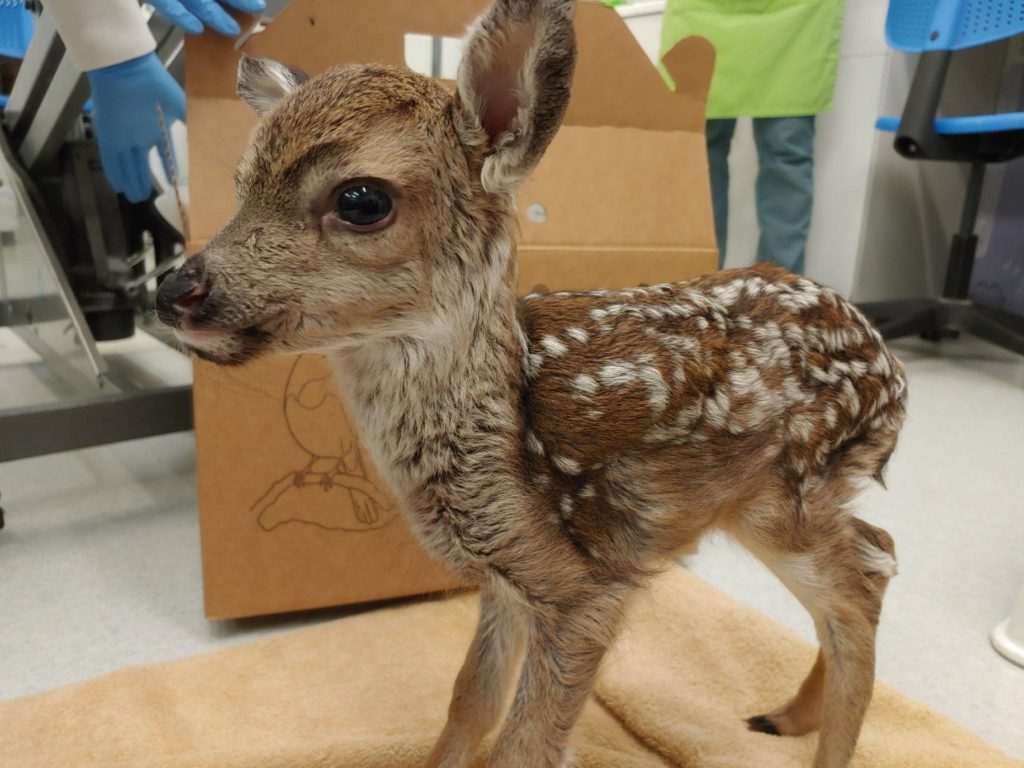Baby Animal Season: The Fawns Have Arrived
 Spring is in full swing and it’s that time of year when baby fawns begin to appear at our wildlife hospital. We received our first fawn patient on April 1. It was suspected that the weeks-old black-tailed deer had been abandoned, or, sadly, more likely orphaned by its mother. An attempt was made to reunite the fawn with its parent but the intervention proved unsuccessful, so the fawn was moved to a different rehabilitation facility where it will stay until it can be returned to the wild.
Spring is in full swing and it’s that time of year when baby fawns begin to appear at our wildlife hospital. We received our first fawn patient on April 1. It was suspected that the weeks-old black-tailed deer had been abandoned, or, sadly, more likely orphaned by its mother. An attempt was made to reunite the fawn with its parent but the intervention proved unsuccessful, so the fawn was moved to a different rehabilitation facility where it will stay until it can be returned to the wild.
So, what do you do if you encounter a fawn, sitting or laying down alone and seemingly defenseless? In most cases, the baby — which can be easily identified by its spotted white coat — has been hidden by its mother while it is off feeding, often from dawn to dusk. So while you may be thinking the right thing to do is rescue this young, fragile-looking animal, pick it up or give it some food, the best thing to do is leave the area and make sure any dogs are kept away. If the mother senses you are too close to her infant, she will not return.
If a fawn has been picked up, please return it to (or as near to) the exact location where it was found. You’ll need to stay several hundred feet away and watch to see if the mother comes back, a process that could take a few hours. If the fawn is visibly injured (you can see bone or it is actively bleeding), is having seizures due to illness, or is orphaned (the mother is confirmed dead), please bring it to our hospital or call the California Department of Fish and Wildlife at (707) 428-2002. Handle the fawn with care — they often have poison oak on their fur.
Finally, unnecessary interactions with a fawn, however well-intentioned, can actually be quite harmful and sometimes fatal. Like rabbits, young deer can easily become too stressed when handled by humans, resulting in capture myopathy. This disease can lead to seizures and even death. Unnecessary handling of a fawn can also post a health risk to humans: young deer can carry zoonotic diseases such as leptospirosis, which can affect both people and dogs! So please make sure you know that a fawn is actually injured or orphaned before interacting with it. Thank you for your help and for caring about wildlife!
